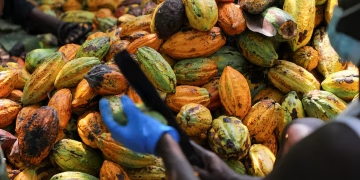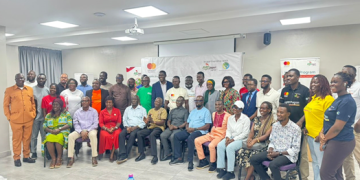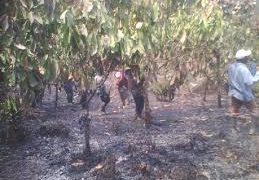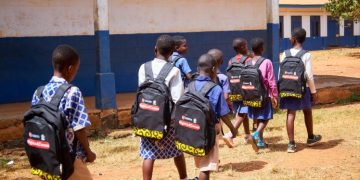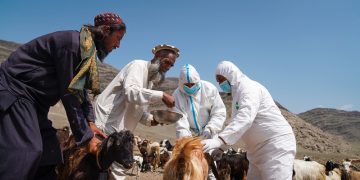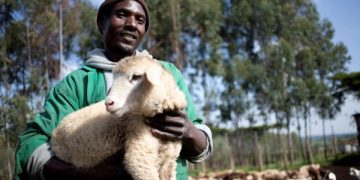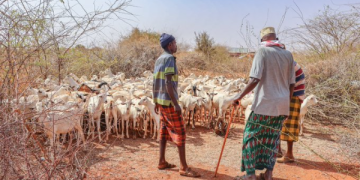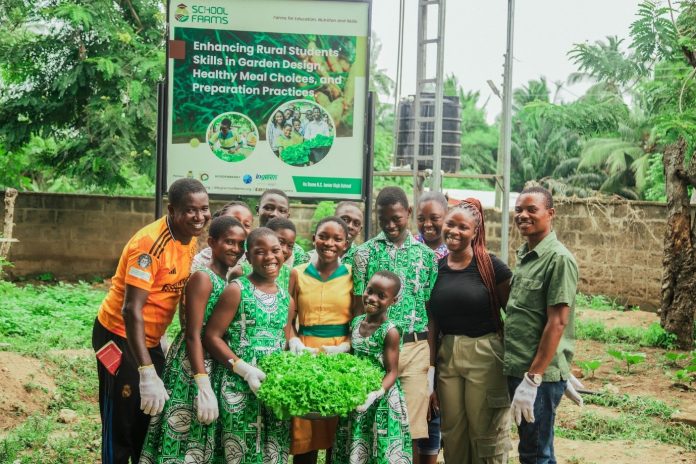In rural Ghana, where food insecurity and limited educational resources often hinder youth development, School Farms is sowing seeds of change.
The nonprofit’s latest impact report, covering July 2024 to July 2025, reveals a year of remarkable growth, with over 300 students gaining hands-on skills in sustainable farming, nutrition, and entrepreneurship yielding not just crops, but empowered communities.
Founded in 2014, School Farms operates under its Farms for Climate, Education, Nutrition, and Skills (CENS+) framework, integrating agriculture into school curricula to address critical gaps in food security, practical education, and climate resilience.
This year, the organization focused on two partner schools in the Volta Region Vane E.P. Junior High School and Ho Dome R.C. Junior High School reaching 342 learners. Through experiential learning, students designed gardens, cultivated crops, and prepared healthy meals, fostering lifelong competencies in areas aligned with Sustainable Development Goals like zero hunger, quality education, and climate action.
One of the standout achievements is the production of 4,184.3 kilograms of fresh produce, including cabbage, cherry tomatoes, cucumbers, and bell peppers, grown in greenhouses and open fields equipped with drip irrigation systems. This output not only supplemented school meals but also boosted community food access.
Partner schools reported a 65% improvement in students’ nutrition literacy, as measured by pre- and post-program assessments, enabling young learners to make informed choices about healthy eating.
“These achievements were only possible because of your support,” said Alfred Godwin Adjabeng, Founder and Executive Director of School Farms, in the report’s leadership message. “Together, we have produced a total of 4,184.3 Kg of food and recorded a 65 per cent improvement in students’ nutrition literacy. The students also gained confidence and competence to drive agricultural innovation in their communities, and reshaped how rural communities view agriculture.”
The report highlights innovative initiatives that amplified impact. Nourish Labs, a dedicated space for nutrition education, allowed students to experiment with meal planning using their harvests, promoting safe cooking and healthy habits. The Students Pop-up Market taught entrepreneurial skills by selling surplus produce, with proceeds reinvested into farm operations covering basics like pricing, weighing, and record-keeping. A pilot mushroom farm diversified crops and enhanced nutritional balance, while the emerging Farms for CENS+Kit provides educators with step-by-step guides to replicate the model nationwide.
Beyond the classroom, School Farms extended its reach through AgroMentoring, offering training and internships to out-of-school youth and vacationing students, supporting rural livelihoods in agribusiness. Community engagement was robust, with over 500 events involving parents, teachers, and local farmers, turning schools into hubs for sustainable agriculture.
Funding played a pivotal role, with a $12,000 grant from the Roddenberry Foundation’s +1 Global Fund enabling infrastructure like greenhouses and tools. Partnerships with Interplast Ghana introduced water-efficient drip irrigation, training over 60 participants and transforming schools into demonstration sites. Total income for the year reached GH₵ 170,849.32, primarily from grants and donations, with expenditures focused on program implementation (GH₵ 155,849.32).
Case stories in the report underscore personal transformations. At Ho Dome R.C. JHS, students like Agbasa Frederica discovered the wonders of seed nursing: “School Farms came at the right time to help us understand some of the things we learn in our curriculum. I never knew cabbage, onion, carrots, and lettuce had seeds. I saw them physically, nursed, transplanted, and watched them grow. It was a wonderful experience.” Teacher Richmond K. Gyamfi added, “Practical lessons from the garden have equipped students with skills in seed nursing, transplanting, and bed preparation. This hands-on experience has ignited a newfound interest in agriculture among the students.”
Challenges were not overlooked, including pests, limited land, and the need for full-time farm hands. Lessons learned emphasize structured scheduling and administrative support to sustain momentum. To address this, School Farms plans to partner with Ghana’s National Service Scheme, deploying personnel to rural schools for ongoing facilitation.
Looking ahead, the organization aims to expand to five schools in the Volta Region by 2026, pilot the CENS+Kit in over 50 institutions, and launch school meal competitions to deepen nutrition education. A follow-up $15,000 grant from the Roddenberry Foundation will fuel these efforts.
School Farms’ model demonstrates how agriculture can bridge educational divides, combat climate change, and foster economic resilience in underserved areas. As Adjabeng noted, the goal is to “build a generation of resilient young people equipped with the knowledge, values, and practical skills to lead in climate action, transform education, improve nutrition, and power local economies.” With tangible results like increased food production and shifted mindsets from viewing farming as a “poor man’s job” to a viable career, School Farms is proving that small-scale innovation can yield big community benefits.


















